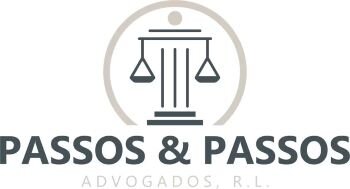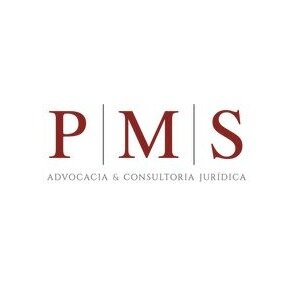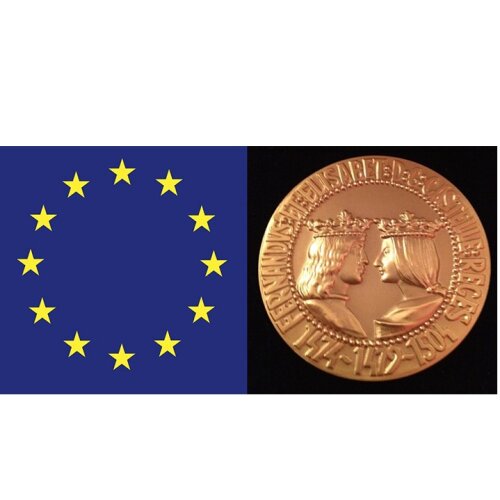Best Faith-Based Law Lawyers in Portugal
Share your needs with us, get contacted by law firms.
Free. Takes 2 min.
Or refine your search by selecting a city:
List of the best lawyers in Portugal
About Faith-Based Law in Portugal
Faith-Based Law in Portugal encompasses the legal framework that governs religious practices and institutions within the country. Portugal, as a secular nation, ensures freedom of religion; however, religious institutions can engage with the law in various contexts such as marriage ceremonies, property ownership, and the establishment of places of worship. Faith-Based Law seeks to harmonize the interaction between religious laws and the secular legal framework, recognizing both the autonomy of religious institutions and the overarching legal standards established by the state.
Why You May Need a Lawyer
Individuals and organizations may require legal assistance in Faith-Based Law for several reasons. Common situations include disputes related to religious properties, issues concerning the rights of religious communities and their members, legal guidance concerning faith-based services like marriages, and matters of religious expression and discrimination. Lawyers can help navigate the complexities of adhering to both civil laws and religious principles, ensuring compliance and protecting the rights of individuals and institutions.
Local Laws Overview
Portuguese law provides for the freedom of religion as outlined in the Constitution, specifically within Article 41, which guarantees religious freedom and the separation between the state and religious institutions. The Concordat of 2004 regulates specific aspects of the relationship between the Roman Catholic Church and the Portuguese state, serving as a legal precedent for other faiths. Additionally, the Law on Religious Freedom (Lei da Liberdade Religiosa) further delineates the rights and obligations of religious institutions, ensuring equality among different faiths and protecting the liberties of their followers.
Frequently Asked Questions
What is the state’s role in religious matters in Portugal?
The state maintains a secular stance, ensuring freedom of religion and registration of religious entities. Its role is to facilitate religious expression while maintaining a clear distinction between spiritual and governmental affairs.
Can religious institutions own property in Portugal?
Yes, religious institutions can own property, but they must comply with the national property laws and regulations. They may also benefit from certain tax exemptions.
Are religious marriages recognized by civil law in Portugal?
Yes, religious marriages can be legally recognized if they comply with specific civil procedures, including registration with the civil registry office.
What are the regulations concerning religious gatherings?
Religious gatherings are generally permitted, but they must comply with local public order regulations and, if applicable, health and safety laws.
How are religious holidays accommodated in Portugal?
Several religious holidays are recognized at both national and regional levels, with some being public holidays. Organizations and individuals may arrange for additional observances based on religious needs.
What legal protections exist against religious discrimination?
Portuguese law provides robust protections against discrimination based on religion in various domains, including employment, education, and public services.
Can foreign religious entities operate in Portugal?
Yes, foreign religious entities can operate, but they must be legally registered in accordance with Portuguese laws and regulations governing religious associations.
Are there specific educational rights for religious schools?
Yes, religious schools are allowed to operate under Portugal’s educational framework, but they must adhere to national educational standards and requirements.
How does law handle conflicts between religious practices and public policy?
Conflicts are usually resolved by balancing religious freedoms with public interests, often requiring legal interpretation and potentially, judicial intervention.
What steps should be taken if a conflict arises between faith-based law and secular obligations?
Consultation with a lawyer specializing in Faith-Based Law is recommended to navigate conflicts and comply with both religious and legal obligations effectively.
Additional Resources
For more information and assistance, individuals and organizations can reach out to the Comissão da Liberdade Religiosa (Religious Freedom Commission) which monitors and supports religious rights in Portugal. Additionally, several law firms specialize in Faith-Based Law, offering expert advice and representation.
Next Steps
If you find yourself in need of legal assistance related to Faith-Based Law in Portugal, consider reaching out to a lawyer specializing in this field. Begin by documenting your concerns and any relevant interactions with religious or civil authorities. This information will be pivotal in guiding legal advice and ensuring your rights and duties are clearly understood and protected. Scheduling a consultation will allow a legal professional to assess your situation and outline a strategy tailored to your needs.
Lawzana helps you find the best lawyers and law firms in Portugal through a curated and pre-screened list of qualified legal professionals. Our platform offers rankings and detailed profiles of attorneys and law firms, allowing you to compare based on practice areas, including Faith-Based Law, experience, and client feedback.
Each profile includes a description of the firm's areas of practice, client reviews, team members and partners, year of establishment, spoken languages, office locations, contact information, social media presence, and any published articles or resources. Most firms on our platform speak English and are experienced in both local and international legal matters.
Get a quote from top-rated law firms in Portugal — quickly, securely, and without unnecessary hassle.
Disclaimer:
The information provided on this page is for general informational purposes only and does not constitute legal advice. While we strive to ensure the accuracy and relevance of the content, legal information may change over time, and interpretations of the law can vary. You should always consult with a qualified legal professional for advice specific to your situation.
We disclaim all liability for actions taken or not taken based on the content of this page. If you believe any information is incorrect or outdated, please contact us, and we will review and update it where appropriate.
Browse faith-based law law firms by city in Portugal
Refine your search by selecting a city.
















